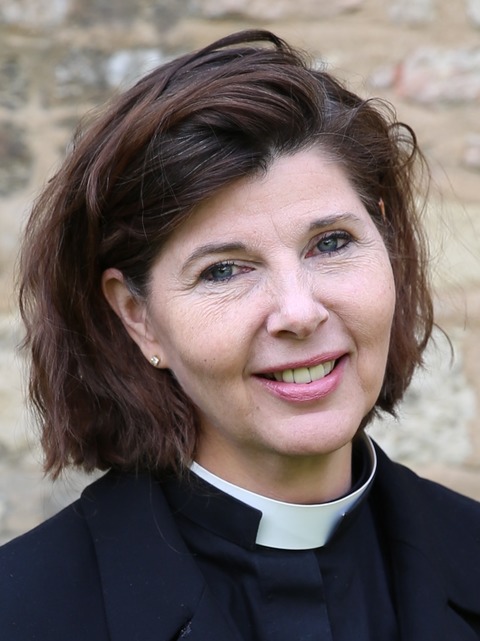|  |
Some of you this summer might have been lucky enough to go on holiday to the seaside. Hopefully you will have felt refreshed and restored by walking along the beach, picking up shells, wading through shallow waters and searching for crabs and sea urchins. Such a favorite summer pastime almost seems to give each and every one of us a sense of primal calm and happiness.
And according to Sir David Attenborough’s brilliant Radio Four series “The Waterside Ape” there might be something in that. This fascinating documentary, which you can download from BBC iPlayer, looks at the origins of man. We were all taught in school that early man got up onto two legs from four so that he or she could hunt better the wildlife of the African savannah. However, new evidence is emerging to show that early man or “hominids” could have stood up on bipeds for a completely different reason. As early as 2 million years ago it seems that they waded through shallow waters, catching fish and foraging for food at the water’s edge. So, far from all being in the desert and trees regions of the world, many could have lived along the shore line, surviving by swimming, diving and living off the creatures of the ocean. This interesting “Aquatic Ape Living Theory” was first developed by the Marine Biologist Alister Harding in 1960 and was followed up by the more populist writer Elaine Morgan in 1972. However, it has not been taken seriously by the scientific world until very recently.
A sea change in the mind set of anthropologists and paleontologists has occurred due to the emergence of new evidence and scientific research. This paradigm shift from previously-held beliefs has happened because of the linking up and sharing of academic research from different experts across the world. Excitingly, this new evidence has helped the scientific community to see the “Aquatic Ape Hypothesis” as a possibly acceptable and plausible theory of early man’s human development.
We too, as a religious community, can draw from this experience by being continually open to new interpretations of scripture and biblical exegesis, which in turn will shape our religious life and faith – making us ever more important to be open to new ideas and research. I urge you to listening to Sir David Attenborough’s programme for, if nothing else, you will gain a better understanding of why man is not only drawn back to the sea but why the annual bucket-and-spade holiday is so popular!
The Rev’d Charlotte Bannister-Parker
Co-Acting Priest in Charge
|
| New College School Parking Code Change
Members of the Sunday congregation are welcome to use the carpark at New College School during this service. If you usually make use of the carpark, please contact Claire (claire.browes@universitychurch.ox.ac.uk) before Sunday to get the new code. If you're interested in using the carpark but don't yet have a pass, please also drop Claire a line.
|
| | Services
—Tuesdays & Thursdays at 12.15pm
Lunchtime Eucharists —
Sunday 18th September Trinity 17 10.30am - Sung Eucharist
Preacher - The Revd Dr Daniel Inman, Chaplain of Queen's College There will be Children's Church during the main service.
5pm - St Cross Service - St Cross Church (see below for details)
THIS SUNDAY, Service at St Cross
There will be a service of Evening Prayer for St Cross Day at St Cross Church (on St Cross Rd) at 5.00pm. It is a rare opportunity to visit this beautiful building which is now used by Balliol College. The service will be followed by drinks in the Praefectus' Lodgings at Holywell Manor. Please do join us.
|
| | Forthcoming Concerts & Other Events— Saturday September 17th
7.30pm - Oxford Festival Orchestra - Janacek, Strauss
Saturday September 24th
7.30pm - Oxford Sinfonia - Beethoven, Schumann
Check out our website and Facebook pages.
______________________________________________________________________________________________________________
|
| | | Harvest Festival
10.30am on 2nd October, All-Age service for Harvest followed by lunch in the Old Library.
There will be a collection of non-perishable food and toiletries which will be shared between Asylum Welcome and the Gatehouse. Please see the list below for what is particularly needed:
food: Cooking oil, Basmati rice, sugar, flour, coffee, tea, tinned fish, tinned fruit and vegetables, UHT milk, chocolate spread, peanut butter
toiletries etc: shampoo, soap, toothpaste, nappies, wipes, shaving things, deodorant, toilet paper and washing powder.
|
| | Poetry Corner
No
No one is ever good enough,
or kind enough.
No one stays awake
through the lovely rush of rain which fills our dark.
No one can hold the music.
They are counting coins or frowning
they are toppling, they are drowning.
No one is good.
But nothing is as quick as us,
no screen can match us
tape’s whirr catch us
nothing tilts like sun
to light from sad.
Nothing in all history
can reach to take your hand from me,
the dark, the rain’s gift, O
we should be glad.
Alison Brackenbury (b. 1953)
published in The Times Literary Supplement
This beautiful poem by Alison Brackenbury is equal parts heartbreak and hope; its negative title really means its opposite. She takes the brick wall of ‘no’ and turns it into potential – mutating ‘no one is good’ into ‘nothing is as quick as us’, giving the stanza break a transformative power, and changing our reading of the poem into an overwhelmingly positive one. It is remarkable that within the space of 17 lines we move effortlessly from ‘No one is ever good enough’ to ‘O / we should be glad’ with the poem retaining a cohesion of tone. Happiness and sadness are, Brackenbury suggests, sides of the same coin.
|
|
| |
|